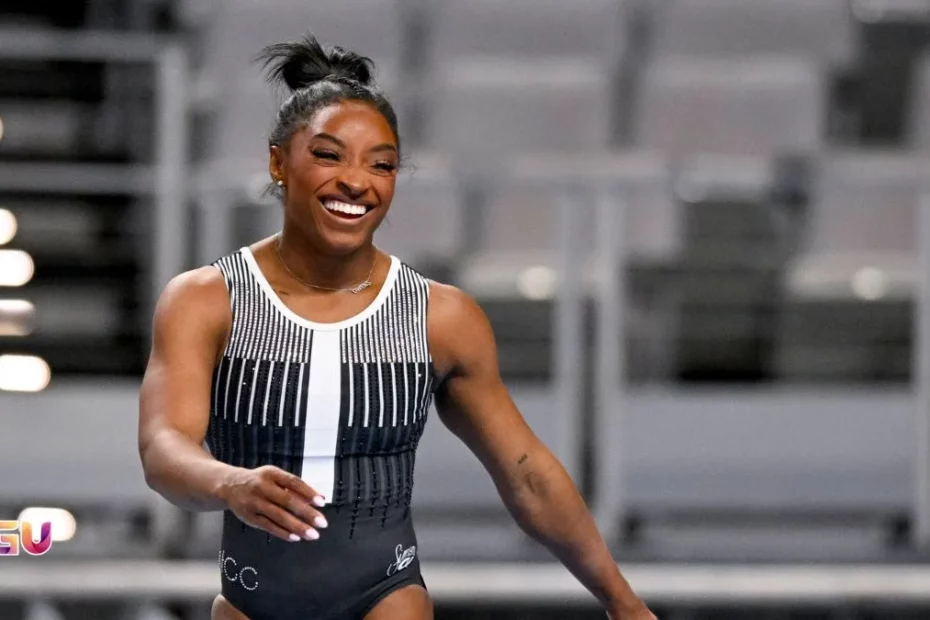Riley Gaines, the former NCAA swimmer who has emerged as a leading voice in the national debate over transgender athletes in women’s sports, is once again in the spotlight—this time for a public clash with Olympic gymnastics icon Simone Biles.
The controversy erupted after Gaines criticized a Minnesota high school softball team for featuring a transgender pitcher, Marissa Rothenberger, who helped lead Champlin Park High School to a state championship. Gaines took aim at the Minnesota State High School League for disabling comments on its celebratory post, writing on X (formerly Twitter), “To be expected when your star player is a boy.”
That post prompted a rare and forceful response from Biles, a seven-time Olympic gold medalist and mental health advocate. In a direct reply, Biles called Gaines “truly sick” and labeled her a “sore loser,” referring to Gaines’ now-infamous fifth-place tie with transgender swimmer Lia Thomas at the 2022 NCAA Championships.
“All of this campaigning because you lost a race,” Biles wrote. “Straight up sore loser… Maybe a transgender category IN ALL SPORTS!! But instead… You bully them.”
Who Is Riley Gaines?
Riley Gaines, 24, rose to prominence after competing for the University of Kentucky, where she earned 12 All-American honors. However, it was her tie with Lia Thomas that catapulted her into conservative media circles. Since then, she has become a vocal critic of transgender women participating in women’s sports, making regular appearances on right-leaning platforms like OutKick and hosting her podcast, Gaines for Girls.
Gaines has built her brand around protecting what she calls the “integrity of women’s sports,” advocating for legislation and policies that ban transgender athletes assigned male at birth from competing in female categories. Critics, including Biles, argue that her activism often crosses the line into personal attacks and targeted harassment of individual athletes, some of whom are minors.
Gaines Fires Back at Biles
In a video response posted online, Gaines said she was “disappointed” in Biles and accused her of undermining women’s sports in the name of inclusion.
“This is a woman who bravely spoke out against sexual abuse in gymnastics,” Gaines said, referencing Biles’ advocacy against former USA Gymnastics doctor Larry Nassar. “But now she’s asking women and girls to step aside and accommodate males in our spaces. That’s not my job.”
Gaines also took issue with Biles’ comment suggesting she “bully someone your own size,” interpreting it as a backhanded comment on her physical build. “I’m 5-foot-5 and 135 pounds of muscle—pretty standard for an athlete,” she said. “You’d think Simone would understand that.”
Public Reaction and Growing Divide
Public response has been sharply divided. Supporters of Biles applauded her for standing up to what they see as bullying behavior, while conservative commentators rallied behind Gaines, framing her as a defender of fairness in women’s sports.
“Simone Biles chose to attack me personally instead of addressing the broader issue,” Gaines said in her video. “She wants to virtue signal while ignoring the real implications for girls across the country.”
Meanwhile, Biles has not walked back her comments, and continues to receive praise from LGBTQ+ advocacy groups for using her platform to challenge exclusionary narratives in sports.
The Bigger Picture
The clash between Gaines and Biles highlights a larger, ongoing national debate: How can sports be made fair and inclusive for everyone? While some argue for gender-based protections, others emphasize the importance of acceptance and safety for transgender youth.
What’s clear is that Gaines, whether seen as a courageous advocate or a controversial figure, has become a central player in this debate—and her influence shows no signs of waning.
